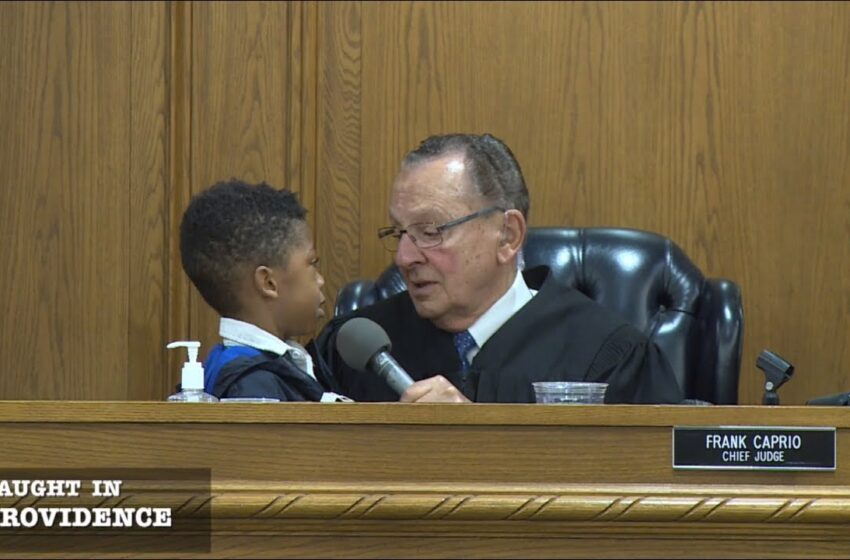Judge Frank Caprio: The people’s judge who made justice human

Judge Frank Caprio on Caught in Providence. Credit: Caught in Providence/YouTube
Frank Caprio never set out to become a television star. Yet, with his warm smile, fatherly humor, and unshakable belief in the dignity of every individual, he turned a small municipal courtroom in Providence, Rhode Island, into a global stage. Through Caught in Providence, the humble traffic court judge became an unlikely cultural icon, embodying a vision of justice rooted in compassion as much as in law.
A Life in Service
Born in 1936 to Italian immigrant parents in Providence, Francesco “Frank” Caprio understood hardship early. His upbringing in a working-class neighborhood shaped his empathy for ordinary people—the very citizens he would later meet in his courtroom. After earning his law degree from Suffolk University, he began a career in public service that spanned decades, eventually serving as chief judge of the Providence Municipal Court.
To Caprio, the bench was never a place of intimidation but of responsibility. He believed every case, no matter how minor, deserved fairness and humanity. That conviction guided his approach when cameras began recording his proceedings—what the world would come to know as Caught in Providence.
The Rise of a Global Phenomenon
At first, Caught in Providence was a modest local production spearheaded by his brother. But clips of Caprio’s rulings soon made their way online, capturing viral moments of humor, kindness, and compassion. There were the children asked to help “judge” their parents’ parking tickets, the struggling single mothers who found relief in reduced fines, and the elderly citizens treated with patience and dignity.
By 2018, the show had broken out of Rhode Island, airing nationally and earning Daytime Emmy nominations. But its true impact was on digital platforms. Millions across the world—people who had never set foot in Providence—saw in Caprio a judge who reminded them of what justice could be: firm, yet merciful; authoritative, yet humane.
The Philosophy of Compassion
Caprio’s courtroom was less about punishment and more about perspective. He asked questions, listened carefully, and often tailored decisions to reflect the reality of those standing before him. A fine that might burden a family struggling with medical bills could be waived; a lesson for a young offender might replace a penalty.
It was not leniency for leniency’s sake—it was a philosophy. Caprio believed justice had to be lived, not performed, and that mercy was a powerful instrument of law. This approach, rare in televised courtrooms often defined by sharp exchanges and theatrical rulings, gave Caught in Providence its distinct character.
A Judge Who Became a Symbol
Caprio’s popularity was never about celebrity in the conventional sense. Rather, it stemmed from the symbolic power he carried. He became the face of an alternative vision of justice, one where the law did not strip people of their humanity. Viewers from New York to Nairobi recognized in him something universal: the desire to be seen, heard, and treated with kindness, even when at fault.
Retirement and Farewell
Judge Caprio retired from the bench in 2023, his courtroom renamed in his honor—a fitting tribute to a man who had become inseparable from its image. When news of his passing at 88 was announced, following a battle with pancreatic cancer, tributes poured in. Colleagues, viewers, and even strangers he had touched through a viral clip remembered him not just as a judge, but as a moral compass in turbulent times.
An Enduring Legacy
In the crowded history of television courtrooms, Judge Frank Caprio will be remembered not for dramatic clashes or stern lectures, but for gentleness, laughter, and understanding. He showed the world that behind every case is a person, behind every violation a story.
His legacy is not simply that he was “America’s nicest judge.” It is that he made compassion visible in a place where few expected it. Through Caught in Providence, Frank Caprio transformed justice into something universal—something human. And that, perhaps, is the truest verdict of his life.

